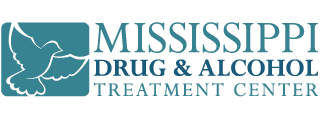Addiction affects every community, but individuals living in rural areas face distinct challenges in accessing treatment and support. Addiction recovery in rural areas like much of Mississippi is complicated by geographic isolation, limited healthcare resources, and social stigma. These barriers create what experts call “care deserts,” where quality addiction treatment can be scarce or difficult to reach.
At Mississippi Drug and Alcohol Treatment Center (MSDATC), we understand the struggles faced by those in rural communities. Our mission is to bridge these gaps and provide accessible, compassionate care for everyone seeking recovery—no matter where they live.
Geographic and Resource Barriers
One of the biggest obstacles to recovery in rural Mississippi is distance. Treatment centers and specialized providers are often concentrated in urban areas, requiring long travel times that many individuals cannot afford. Limited public transportation options further complicate access.
Rural clinics may also lack the staffing, funding, or infrastructure to offer comprehensive addiction services like detox, medication-assisted treatment (MAT), or behavioral therapy. This scarcity means people may have to rely on primary care providers who have less training in addiction medicine or delay seeking help altogether.
Research confirms that residents in rural areas experience lower rates of addiction treatment utilization compared to their urban counterparts. The National Rural Health Association highlights these disparities, emphasizing the urgent need for expanded rural addiction services.
The Impact of Stigma and Privacy Concerns
Stigma around substance use disorder is often more pronounced in close-knit rural communities. Fear of judgment from neighbors, family, or employers can deter people from seeking help. Unlike urban settings where anonymity is easier, rural residents may worry that their treatment efforts will become public knowledge, risking social or professional consequences.
This stigma also affects families, who may feel isolated or ashamed. Misunderstandings about addiction as a moral failing rather than a chronic disease further compound barriers to care.
MSDATC works to combat stigma by providing education, outreach, and confidential treatment options that respect privacy and dignity. Through family therapy and support groups, we help rebuild trust and reduce shame associated with addiction.
Innovative Solutions for Rural Recovery
Recognizing these challenges, MSDATC has developed strategies to increase access for rural clients:
- Telehealth Services: Virtual counseling and medical appointments reduce travel burdens while ensuring consistent care. Telehealth has proven effective in delivering individual therapy, medication management, and relapse prevention support.
- Outreach and Community Partnerships: MSDATC collaborates with rural health clinics, faith-based organizations, and local leaders to raise awareness, provide education, and facilitate referrals.
- Transportation Assistance: For clients who require in-person treatment, transportation support helps overcome the hurdle of distance.
- Flexible Treatment Programs: Tailored care plans accommodate work schedules, family responsibilities, and other rural lifestyle factors to enhance engagement.
These initiatives reflect MSDATC’s commitment to making recovery attainable no matter where someone lives.
The Importance of Culturally Sensitive Care
Understanding the unique cultural and economic contexts of rural Mississippi is vital for effective treatment. Poverty, limited employment opportunities, and lack of recreational activities contribute to stress and substance use risk.
MSDATC’s care teams are trained to provide trauma-informed and culturally competent services that respect rural values and experiences. This approach improves trust, retention, and recovery outcomes.
Success Stories from Rural Clients
Many individuals from rural communities have found hope and healing through MSDATC’s programs. With personalized care, accessible resources, and ongoing support, they overcome barriers and build fulfilling lives in recovery.
Hearing their stories reminds us that addiction recovery in rural areas is possible—and that tailored, compassionate care can transform communities.
How to Access Help in Rural Mississippi
If you or a loved one is struggling with addiction in a rural area, know that support is available. MSDATC offers a range of treatment options designed to meet you where you are, both geographically and emotionally.To learn more about our services and how we reach underserved regions, connect today. Recovery is within reach—no matter where you call home.


 Sleep in Early Recovery: Why It’s Disrupted and How to Improve It
Sleep in Early Recovery: Why It’s Disrupted and How to Improve It